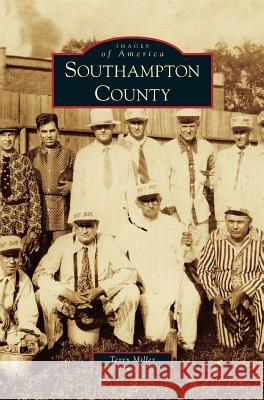Southampton County » książka
Southampton County
ISBN-13: 9781531644789 / Angielski / Twarda / 2009 / 130 str.
In 1734, land between the Blackwater and Meherrin Rivers was named Nottoway Parish after the small communities of Native Americans found there, and soon thereafter it was settled as Southampton County. Over time, the county had seven disparate townships later linked by a railroad. Like many Southern counties, Southampton's populace was comprised of Native Americans, whites, free blacks, and slaves existing in a predominantly cotton and peanut plantation economy. The devastation of the cotton crop in 1818, the ill fated two-day slave insurrection led by Nat Turner, and its equally bloody aftermath in 1831 were critical shapers of Southampton's social and economic culture. Its insurrectionist past and subsequent affect on U.S. domestic policy are the principal reasons the county has been extensively documented. This book is the first pictorial history that gives equal attention to the county's diversity from the late 19th through the early 20th centuries.
In 1734, land between the Blackwater and Meherrin Rivers was named Nottoway Parish after the small communities of Native Americans found there, and soon thereafter it was settled as Southampton County. Over time, the county had seven disparate townships later linked by a railroad. Like many Southern counties, Southamptons populace was comprised of Native Americans, whites, free blacks, and slaves existing in a predominantly cotton and peanut plantation economy. The devastation of the cotton crop in 1818, the ill fated two-day slave insurrection led by Nat Turner, and its equally bloody aftermath in 1831 were critical shapers of Southamptons social and economic culture. Its insurrectionist past and subsequent affect on U.S. domestic policy are the principal reasons the county has been extensively documented. This book is the first pictorial history that gives equal attention to the countys diversity from the late 19th through the early 20th centuries.











